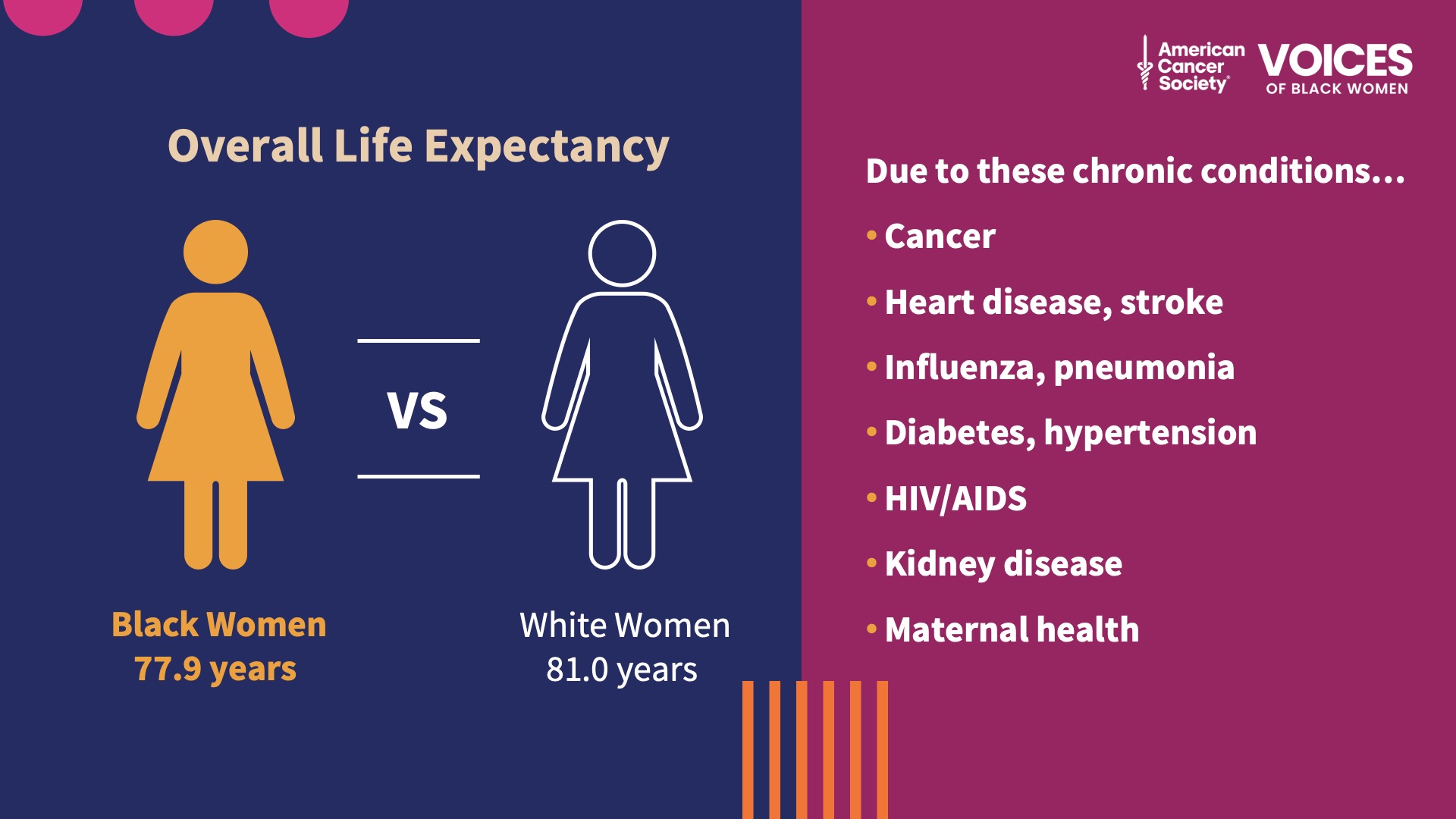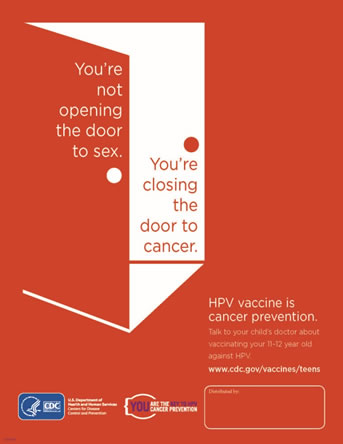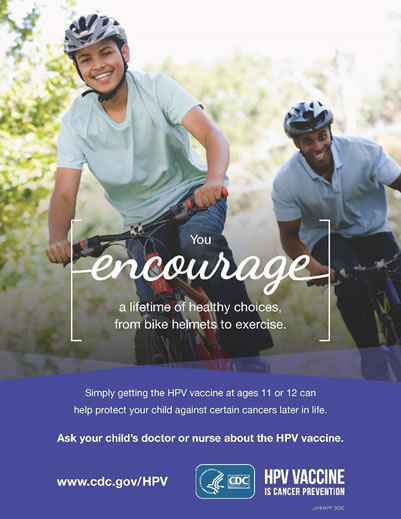Cancer
Cancer is a group of diseases characterized by uncontrolled growth and spread of abnormal cells. If the spread is not controlled, it may result in death. Most types of cancer cells form a lump or mass called a tumor and are named after the part of the body where the tumor originates. Cancer is caused by both external and internal factors.
Missouri is home to an estimated 300,000 cancer survivors. Nationally, 2 out of every 5 people are at risk of developing cancer during their lifetime, with one in five at risk of dying from cancer. In 2016, 32,687 of Missouri’s residents were diagnosed with invasive cancer. This amounted to nearly four new cases of cancer diagnosed every hour of every day.
With an average of 12,685 deaths annually (individuals 45 and older) during 2017-2018, cancer is second only to heart disease as a leading cause of death among adult Missourians.
Specific cancer data for Missouri and for individual counties can be accessed at: Cancer MICA or Death MICA.

American Cancer Society’s VOICES of Black Women
VOICES of Black Women aims to enroll at least 100,000 Black women in the United States over the next few years. The goal of this study is to better understand health conditions like cancer and how to improve overall health among Black women.
Black women have been historically underrepresented in research, and this “next generation” study will help us overcome previous limitations from such under-representation. Information from our VOICES participants will help optimize the health of Black women for generations to come by giving ACS VOICES researchers the opportunity to:
- Advance the knowledge of the health conditions that affect Black women.
- Inform strategies for interventions to help Black women decrease their risk for certain diseases.
- Inform advocacy efforts that initiate, support, or expand health policies based on evidence-based research.
Resources
Cancer Screening and Prevention
The below links offer screening and prevention information for the six most commonly diagnosed cancers in Missouri. Information about when to begin screening, how often to screen, and how to reduce the risk of developing these cancers can be found.
There are many ways to take charge of your health to prevent developing cancer. See the videos below to learn more.
- Reduce Your Cancer Risk with Screenings
- Lead a Healthy Lifestyle to Prevent Cancer
- HPV Vaccination Can Prevent Cancer
Check out these Cancer Screening Brochures
State Employee Screening Project
View the educational webinar to learn more.
Cancer Survivorship
An individual is considered a cancer survivor from the time of diagnosis through the rest of his or her life. Survivors experience many side effects during and after cancer treatment. These side effects can be physical and emotional. These resources provide tips to improve physical and mental health and prevent cancer recurrence.
Watch these videos to learn more about the importance of healthy survivorship from real Missourians who've beaten cancer.
Human Papillomavirus (HPV)
What is Human Papillomavirus (HPV)?
Human Papillomavirus (HPV) is a group of more than 150 related viruses and each virus is given a number. Viruses are very small organisms, so small that a special microscope is needed to see them. The most common types of HPV are found on human skin and cause warts on hands, feet, arms and chest. Other types of warts are found on the body’s moist surface layers that line organs and parts of the body that open to the outside like the mouth, throat, vagina, anus and eyelids.
More than 40 of the 150 viruses are spread easily through direct skin-to-skin and during oral, vaginal and anal sex. Low-risk HPVs can cause all types of warts but the high-risk types can cause cancers. For most people who get an HPV infection, their immune system will attack the virus and clear the HPV infection within 2 years. However, sometimes the infection does not go away. A long lasting or chronic infection especially the high-risk HPV types can cause cancer over time.
Due to the many types of HPV, you may get several different types during your life. You can have the same type more than once but the chance of this is low.
You cannot get HPV from hugging or holding hands, sharing food or utensils, poor hygiene, swimming pools or hot tubs, or toilet seats. You can have HPV even if it has been years since you were sexually active and if you do not have any symptoms.
What are the Symptoms of HPV? Can HPV be Treated?
Most people will never know that they have HPV. Most HPV types have no symptoms and most people will not develop health problems because of HPV. For most people, their immune system will attack the virus and clear the HPV infection within 2 years. This is true of both low- and high-risk HPV types. Sometimes the body does not clear the HPV infection.
The low-risk HPV type infections can cause warts on hands, feet, arms and chest, and genital warts. Warts can be treated. Warts caused by low-risk HPV types rarely turn into cancer. About 75% of the HPV types cause warts. The other 25% of HPV types infect the moist surface layers like inside the nose, mouth, throat and eyelids.
The high-risk HPV type infections usually have no symptoms, but this type of HPV can cause cells to change over many years. The changed cells may become cancer.
There is no treatment for the HPV virus itself. Warts and pre-cancer cells can be treated. Cancer in the head, neck, cervical, anal and genital areas can be treated too. It is easier to treat cancer when found early when it is small and has not spread.
Why Does HPV Increase Cancer Risk?
HPV and co-infections are very common. About 80 million Americans are currently infected with HPV and about 14 million people will get a new HPV infection every year according to the Centers for Disease Control and Prevention (CDC). HPV infections clear up most of the time without causing problems. If an HPV infection does not clear up and stays in the body, it may cause cancer later in life. Long-standing infections with certain types of HPV are the main cause of nearly all cases of cervical cancer.
“More than half of all sexually active people contract one or more types of this virus at one time, making it the most common sexually transmitted disease in the U.S.,” according to the Head and Neck Cancer Alliance (HNCA)
Long-standing infections with certain types of HPV are the main cause of nearly all cases of cervical cancer.
In addition, oral, head, and neck cancers associated with HPV are on pace to overtake the incidence of cervical cancer by the year 2020,” according to the Head and Neck Cancer Alliance (HNCA).
Can HPV Related Cancers be Prevented?
Yes! The American Dental Association (ADA), National Cancer Institute (NCI) at the National Institutes of Health (NIH), Centers for Disease Control and Prevention (CDC), American Academy of Pediatrics (AAP), American Cancer Society (ACS) and many other agencies and organizations recommend that children and adults ages 9 to 26 be vaccinated for HPV.
The HPV vaccine is safe and very effective in preventing 9 of the 150 known HPV types. Talk with a dentist or doctor about being vaccinated for HPV prevention. The vaccine is called Gardasil®9 and protects against HPV types 16, 18, 6 and 11, and types 19, 31, 33, 45, 52 and 58 that may cause anal, cervical, vulvar and vaginal cancers.

Facts About HPV Vaccine
- The vaccine prevents certain cancers that start in the throat, cervix, vulva, vagina, penis and anus. The HPV vaccine works well providing almost 100% protection against infections and pre-cancers caused by certain types of HPV. It is estimated that 90% of HPV cancers can be prevented if with vaccination.
- The HPV vaccine works best when given to children between the ages of 9 to 12. Vaccines are used to help stop diseases by giving children the protection before being exposed to the virus. In the United States, most people are exposed to HPV in the teens and early twenties, so vaccinating before the age of 12 is best. The body produces the most antibodies to HPV when given before the age of 12. People ages 13 to 26 who did not receive all of the doses or have not been vaccinated should get the vaccine as soon as possible.
- The HPV vaccine is for girls and boys. The vaccine is recommended for all children to help protect them from infection that can cause cancer when they get older. HPV is so common that at least 8 out of 10 people in the US will be exposed to it in their lives. Most HPV infections go away without causing health problems, but we do not know if infections will not go away and may eventually cause cancer.
- The vaccine is safe. The HPV vaccine has been used since 2006. All vaccines including the HPV vaccine have to go through extensive safety testing before they can be used. More than 120 million doses have been given in the US. The vaccine is closely monitored by scientists and health organizations for safety. There are common side effects from the HPV vaccine that go away quickly, like fever or headache. A small number of people may have an allergic reaction to the vaccine. Anyone with a severe allergy to yeast or any other ingredient in the vaccine should not receive the vaccine.
- The vaccine does not contain harmful ingredients. The ingredients in the vaccine help make it effective and safe. All ingredients can be found in the environment, human body and foods. The HPV vaccine contains aluminum like other vaccines. Aluminum boosts the body’s immune response to the vaccine. Everyday people are exposed to aluminum in food, cooking utensils, water and even breast milk.
- The HPV vaccine can protect fertility, not harm it. More than 100 studies have shown that the vaccine is safe with no data to suggest that the vaccine will affect your chances of having children later in life. In fact, the vaccine helps protect women from future problems linked to pre-cancer and cervical cancer. The vaccine is a safe way to help protect health and the ability to have healthy children in the future.
- The vaccine lasts a long time. Current research shows that the protection provided by the HPV vaccine does not lessen with time. Research will continue to watch how long protection against HPV lasts. If research shows that vaccine protection does lessen with time, booster shots will be provided.
For maximum protection against HPV, vaccinate children between ages 9 to 14 with 2 doses of the vaccine. The vaccine works best at this age. Pre-teens have a better immune response to the vaccine than people do in their late teens and early 20s.
The vaccine will only prevent the 9 types of HPV if given before exposure to the HPV happens.
The HPV vaccine cannot be used to treat HPV-related cancer.
Who Should Receive the HPV Vaccine?
| Who Should Get the HPV Vaccine | # of Doses | When Should the Vaccine Be Given |
|---|---|---|
| Children ages 11-12 years, who do not have health conditions that make it difficult to fight infections (can be started in children ages 9-14 years) | 2 | Second dose: 6-12 months after the first |
| Teens and adults ages 15-26 who have not been vaccinated Also, children or adults ages 9-26 years with lowered immunity, talk to your doctor about medical problem that fit this category. |
3 | Second dose: 1-2 months after the first Third dose: 6 months after the second |
| Adults 27 up to age 45 years of age who are at a high risk for HPV with shared clinical decision making. | 3 | Second dose: 1-2 months after the first Third dose: 6 months after the second |
How to Find the HPV Vaccine
- Children in the United States can get the HPV vaccine for little to no cost.
- Children can receive the vaccine from their pediatrician or the county health department. The HPV vaccine can be given on the same day, in the same way as the Tdap and Meningitis vaccines shots needed for back-to-school.
- Children who are eligible can receive free vaccines before their 19th birthday through the Vaccines for Children program.
- Most insurance plans will cover the HPV vaccine, but check with your plan to be sure.
For more information on this and other immunizations, please visit the Missouri Immunization Coalition website.
The Merck Patient Assistance Program can be reached by calling 1-800-727-5400 or by going to their website.

Educational Resources and Toolkits
Comprehensive Cancer Control Program
Missouri’s Comprehensive Cancer Control Program (CCCP) is funded by the Centers for Disease Control and Prevention (CDC) and provides leadership for, and coordination of, our state’s comprehensive cancer control efforts.
Comprehensive cancer control describes the collaboration between communities and their partners with a common goal of reducing the burden of cancer. These efforts help to:
- reduce cancer risk;
- find cancers early;
- improve treatment; and
- improve the quality of life of cancer survivors.
The CDC established the National Comprehensive Cancer Control Program (NCCCP) in 1998 to assist states in the creation of coalitions to fight cancer. These coalitions collaborate to determine the greatest cancer-related needs in their states and develop and carry out cancer plans to meet those needs.
Evaluations and Reports
- Campaign to Increase Breast and Cervical Cancer Screening in McDonald County
- Cancer Control Environmental Scan: An Internal Assessment
- Comprehensive Cancer Control Program Year 1 (2017-2018) Evaluation Report
- Comprehensive Cancer Control Program Year 2 (2018-2019) Evaluation Report
- Prostate Cancer White Paper (August 2019)
Additional Resources
- American Cancer Society
- Cancer Information Service
- CDC – Cancer Prevention and Control
- Leukemia and Lymphoma Society
- Missouri Cancer Consortium
- Missouri Lung Cancer Coalition
- Missouri Tobacco Quitline
- National Cancer Institute
- National Comprehensive Cancer Control Program
- R.A. Bloch Cancer Foundation, Inc
- Show Me Healthy Women
Missouri Cancer Inquiry
The goal of the cancer inquiry (CI) process is to work with individuals or communities in exploring the nature of their cancer concern, provide health education on cancer risk factors, and, when appropriate, provide epidemiological information. DHSS staff, in consultation with the chronic disease public health epidemiologist and the CI committee, works with the local public health agencies and the communities. Staff or regional cancer coalition members may give educational presentations in locations with a cancer concern and may help to address the specific needs of that community.
The CI process focuses on determining if a perceived excess is real. If a true cluster is identified, then the CI staff will assist in the implementation of epidemiological studies, notify agencies responsible for remediation of an environmental hazard (if one exists), and educate residents in the area of concern regarding the risk and the response of state government and other agencies concerning cancer in their community.

General Notes About Cancer and Cancer Clusters:
- Cancer is not one disease. Different cancers, like other chronic diseases, have different causes and risk factors.
- Cancer is very common. More than one in three women, and nearly one in two men will be affected by some type of cancer in their lifetime.
- Age, family history (genetics) and lifestyle factors (diet, exercise, alcohol or tobacco use) are usually more important risk factors for cancer than environmental contamination.
- Clustering can still be a random occurrence, even when statistical tests indicate that cancer cases are higher than expected.
Life Savers - Programs For You!
Organ & Tissue Donation
Learn how to join the Missouri organ and tissue donor registry.
Show Me Healthy Women
Early detection saves lives. Get breast and cervical cancer screenings.
WISEWOMAN
Get access to health screenings and lifestyle education that can reduce the risk of heart disease and stroke.
Missouri Tobacco Quitline
Access to counseling, information and referrals for smokers who want to quit using tobacco.


















